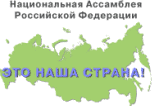|









 Блог Андрея Илларионова Блог Андрея Илларионова





 








горизонты промышленной
политики
ИРИСЭН
|
ГРУЗИНСКИЕ РЕФОРМЫ
Radical libertarian reforms work
Hurriyetdailynews, May 22, 2011
SOPHIE QUINTIN ADALI
Yet a shock therapy of deregulation, liberalization and rule of law is precisely the medicine the Arab world must urgently take to meet the aspirations of a jobless disgruntled youth. For the economist Guy Sorman, it is imperative for the region to move away from statist economies to free market societies based on property rights, the right to entrepreneurship and competition. Only with this second revolution – not more aid – will the hope of millions to be lifted out of mass poverty will materialize (The City, “Egypt’s unborn revolution,” 18/02/2001).
Looking east, not north could inspire reformist-minded Arab leaders to be bold.
In her first book “Why Georgia has succeeded” (2011), Russian economist Larisa Burakova maps the course of the country’s economic revolution. Under the stewardship of Kakha Bendukidze (Minister for Reform coordination, 2004-2008), Georgia has transited from a statist economy stifled by a corrupt state bureaucracy and red tape into one of the most successful post-Soviet economies. The spectacular increase in economic freedoms (12th in 2011 World Bank, “doing business index”) has generated economic growth (6.4 percent, 2011) and more prosperity. A few years only after the 2003 Rose Revolution, this feat is truly remarkable. The author argues that this success bears testimony to the idea that radical liberal economic reforms, if well handled, can work anywhere.
There is no such thing as an ideal or painless transition model but only fools can ignore what works and what doesn’t. European leaders would be well advised to take a few lessons in “Bendunomics.”
*Sophie Quintin Adal? is an analyst for www.unmondelibre.org, a French classical liberal think tank.
Вернуться к списку
|

